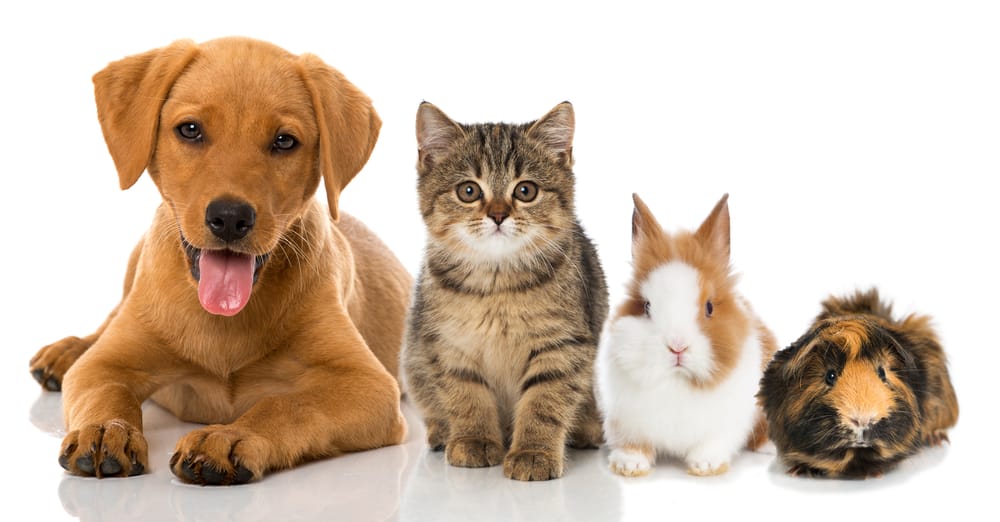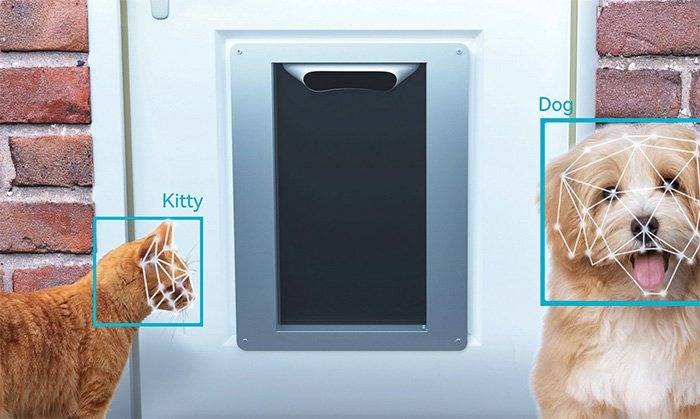
How to Choose the Right Pet for Your Lifestyle
Choosing the right pet is an important decision that can greatly impact your lifestyle. It’s essential to consider factors like living space, time commitment, and personal preferences. This article will guide you through the process of selecting the perfect pet based on your daily routines, energy levels, and living situation to ensure a happy and fulfilling companionship.
🐶 Pet Star
24 min read · 24, Jan 2025

Consider Your Living Space
The first step in choosing the right pet is evaluating your living situation. The size of your home plays a significant role in determining which pets will feel most comfortable in your space.
1. Small Apartment or Studio
If you live in a small apartment or studio, consider pets that require minimal space. Small dog breeds such as French Bulldogs, Chihuahuas, or Dachshunds are great choices. Cats are also excellent companions for smaller living spaces, as they are independent and require less room. Small animals like hamsters, rabbits, or guinea pigs can also make good pets in small spaces, especially if you provide a cage or designated area for them.
2. Larger Home with Yard
If you have a larger home with a yard, you have more flexibility in choosing pets. Active dog breeds such as Border Collies, Labrador Retrievers, or Golden Retrievers thrive in homes with ample outdoor space. Larger pets, like certain dog breeds and even some exotic animals, can benefit from having a yard where they can exercise and explore. However, it's essential to provide them with adequate space inside as well for when they are indoors.
Assess Your Time Commitment
Different pets have different needs in terms of care and attention. Before choosing a pet, consider how much time you can realistically dedicate to their care.
1. High-Time Commitment
If you have the time to invest in a more demanding pet, a dog might be a great choice. Dogs, especially puppies or active breeds, require regular exercise, training, socialization, and attention. Daily walks, playtime, and grooming are essential to maintaining their health and happiness. If you have the time to meet these needs, a dog can be an incredibly rewarding companion.
2. Low-Time Commitment
If your schedule is busier or you travel frequently, a pet with lower time demands might be more suitable. Cats are independent and can entertain themselves for longer periods, making them ideal for people with busy work schedules. Smaller pets like fish, reptiles, or birds also tend to require less attention and can be a great option for someone with a more limited time commitment.
Consider Your Activity Level
Your activity level is a key factor when choosing a pet. Some pets require more physical activity than others, so it’s important to choose a companion that matches your energy levels.
1. Active Lifestyle
If you lead an active lifestyle and enjoy outdoor activities such as hiking, running, or playing sports, a pet that shares your enthusiasm for physical activity will be a great fit. High-energy dog breeds like Australian Shepherds, Border Collies, and Siberian Huskies love outdoor adventures and exercise. Cats can also be active, especially if they have access to a secure outdoor area or if you engage them in interactive play.
2. Less Active Lifestyle
If you prefer a more relaxed lifestyle, consider pets that don’t require as much exercise. Cats, for example, are low-maintenance in terms of physical activity and can be content with indoor play and lounging. Small dogs with lower energy levels, such as Shih Tzus, Basset Hounds, or Bulldogs, are also well-suited for less active households. Other low-maintenance pets include small rodents or even reptiles, which don’t require daily exercise.
Consider the Pet’s Lifespan
When selecting a pet, it's important to take into account the lifespan of the animal. Some pets live longer than others, and you should be prepared for the long-term commitment that comes with owning a pet.
1. Shorter Lifespan Pets
If you’re looking for a pet with a shorter commitment, small animals like hamsters, guinea pigs, or rabbits might be the best option. These pets typically live for 3-5 years, which means you can enjoy companionship without a decades-long commitment. However, it’s important to note that even pets with shorter lifespans still require love, care, and attention.
2. Longer Lifespan Pets
If you’re ready for a long-term commitment, pets like dogs, cats, and some bird species are known for their long lifespans. Cats generally live for 12-20 years, while some dog breeds can live up to 15 years or more with proper care. Larger dog breeds may have shorter lifespans, while small breeds like Chihuahuas can live well into their late teens. If you choose a pet with a longer lifespan, be prepared to care for them through all stages of life.
Allergies and Health Considerations
Before choosing a pet, consider any allergies you or your family members may have. Pet allergies, especially to cats and dogs, are common and can cause discomfort or health issues.
1. Hypoallergenic Pets
If you or someone in your household is allergic to pet dander, look for hypoallergenic pets. Certain dog breeds, like Poodles, Bichon Frises, and Schnauzers, are less likely to trigger allergies because they shed less dander. Some cats, such as the Siberian or Balinese, are also considered hypoallergenic. Fish, reptiles, and small rodents are other good alternatives for allergy sufferers.
2. Consider Health Needs
It’s also important to consider the health needs of the pet. Some pets, like brachycephalic dog breeds (e.g., Bulldogs or Pugs), may have respiratory issues, while certain cats may be prone to kidney disease or obesity. Researching the specific health issues of a breed or species can help you prepare for their needs and ensure you can provide appropriate care.
Personality and Temperament
Every pet has its own unique personality. Some pets are social, while others are more independent. Understanding your own personality and preferences can help you select the right pet.
1. Social Pets
If you’re looking for a companion that thrives on social interaction, consider pets with outgoing personalities. Dogs are generally social animals, with many breeds being eager to interact with people. Some cats are also very affectionate and enjoy cuddling and spending time with their owners. Birds like parrots are also highly social and form strong bonds with their human caregivers.
2. Independent Pets
If you prefer a more independent pet, consider animals that require less attention. Cats tend to be more independent than dogs, and some breeds, like the British Shorthair or the Russian Blue, are more aloof. Fish, reptiles, and rodents are also low-maintenance and can be left alone for longer periods of time, making them ideal for individuals who prefer pets with more self-sufficiency.
Budget and Financial Commitment
Pets come with ongoing costs, such as food, grooming, and veterinary care. It’s important to choose a pet that fits within your budget to ensure that you can meet their needs.
1. Budget-Friendly Pets
If you’re looking for a pet that is easier on the wallet, consider smaller animals such as fish, hamsters, or guinea pigs. These pets typically have lower food and maintenance costs compared to larger animals like dogs. However, even small pets will require proper care, so it’s important to budget for their needs.
2. Higher Cost Pets
If you have the financial resources for a higher-maintenance pet, dogs and cats may be a great option. Larger dogs may require more food, grooming, and veterinary care, which can add to the costs of ownership. Additionally, exotic pets like reptiles and birds can have special dietary and habitat needs, which may increase your expenses.
Q1: How do I know if a pet is a good fit for my lifestyle?
Ans) Consider your living space, activity level, time commitment, and budget when choosing a pet. Match the pet’s needs with your daily routine and resources to ensure a happy and fulfilling relationship. For example, if you’re busy and live in an apartment, a cat or small pet might be more suitable than an active dog.
Q2: Are certain dog breeds better for families with kids?
Ans) Yes, some dog breeds are known for being more family-friendly and good with children, such as Golden Retrievers, Labrador Retrievers, Beagles, and Collies. These breeds are generally gentle and patient, making them ideal companions for families.
Q3: How much time should I spend with my pet each day?
Ans) The time commitment varies by pet type. Dogs, especially active breeds, require at least an hour of exercise and social interaction daily. Cats need less attention but still benefit from playtime and companionship. Small pets like hamsters or fish require less hands-on time, but they still need regular care.
Q4: What are the costs associated with adopting a pet?
Ans) The costs of adopting a pet vary depending on the species and breed. Adoption fees typically cover spaying/neutering, vaccinations, and microchipping. Additionally, you will need to budget for ongoing expenses such as food, toys, grooming, and veterinary care.
Q5: Can I adopt a pet if I live in a small apartment?
Ans) Yes, many pets are well-suited for apartment living, including small dog breeds, cats, rabbits, and even fish. It’s important to choose a pet that is comfortable in smaller spaces and meets your lifestyle needs.
Similar Articles
Find more relatable content in similar Articles

How Pets Strengthen Family Bonds...
Pets are more than just compan.. Read More

Smart Homes for Pets: Automated Feeders, Doors, and Mo..
As smart home technology advan.. Read More

How Climate Change Affects Wild and Domestic Animals...
Climate change is dramatically.. Read More

Sustainable Pet Products: What to Look for in 2025...
As sustainability becomes a ce.. Read More
Explore Other Categories
© 2024 Copyrights by rPets. All Rights Reserved.